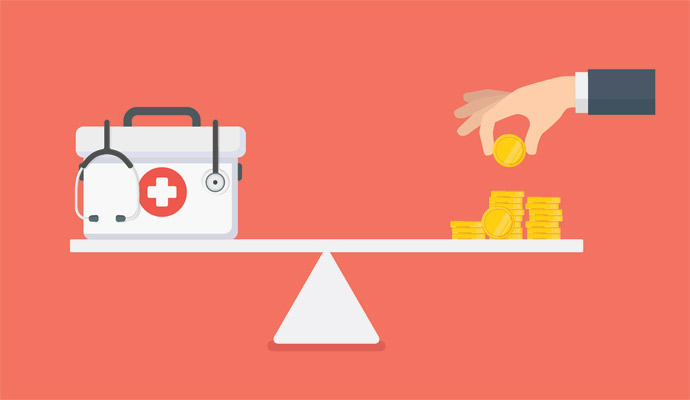Most Adults Have Low Health Literacy, Strong Medical Bill Concerns
Low health literacy among adults can prevent members from fully understanding their benefits, leading to confusion about coverage and unexpected medical bills.

Source: Getty Images
- The majority of insured individuals in the United States are concerned about paying their medical bills, with low health literacy contributing to these concerns, according to the MITRE-Harris Poll Survey on Health Insurance Literacy and Perception.
The Harris Poll conducted the survey between June 24 and June 28, 2021 on behalf of the not-for-profit organization MITRE. The results included responses from 2,013 adults who spanned ages 18 and up.
Around three in four adults responded that they were concerned about facing financial hardships due to medical bills, with 20 percent reporting that they were very concerned and 23 percent being somewhat concerned.
This concern may be attributed to the arrival of unexpected medical bills.
Nearly half of the concerned adults (47 percent) received an unexpected medical bill because their payer did not cover as much of the service as members anticipated. Just over 40 percent of adults reported receiving a surprise bill for something that they thought would be covered by insurance but was not.
Unknowingly visiting out-of-network doctors or clinics also caused unexpected bills for 33 percent of adults, the survey results found.
Unexpected bills occurred more often for individuals on employer-sponsored health plans compared to Medicare beneficiaries.
Additionally, the survey revealed that Americans are not fully confident in their understanding of their health plans. Only one out of three adults said that they completely understand their health insurance plan, with 53 percent reporting that they somewhat understand it. Almost 15 percent of respondents said that they do not understand their plan very well or at all.
Individuals were also notably unsure about understanding which mental health services are covered by their health plan as well as the telehealth options that were available through their plan (26 percent and 24 percent, respectively).
In addition, about four in ten adults said that they only somewhat understood plan aspects including their deductible, co-pays for certain services, and which prescriptions, preventative care, and other services are covered by their plan.
“These survey results highlight the challenges that people across the nation face in selecting and using their health insurance,” said Juliette Espinosa, a senior strategist at MITRE who focuses on Medicare, Medicaid, and ACA marketplace.
“Even those fortunate to have insurance struggle with bills that result from misunderstanding or underestimating deductibles, scope of covered benefits, and level of financial exposure for out-of-pocket costs of treatments and procedures.”
Two-thirds of adults said they were unaware that hospitals are required to publicly list their prices. After learning this, nearly 70 percent said that they were likely to look up the prices before going to a hospital next. Adults who were white, older, had lower incomes, and less education were most likely to be unaware of the price listing requirement.
Confusion regarding coverage details may also contribute to patient concern with medical bills. Twenty-eight percent of adults reported that they never check to see if a service is covered prior to receiving it, therefore they do not have an estimate of what the cost will be.
Nearly three in ten individuals said the most frustrating aspect of their health plan is trying to figure out what is and what is not covered. Two out of ten respondents mentioned that trying to figure out which providers are in-network is frustrating as well.
Overall, a lack of consumer understanding of health plans is perhaps the biggest contributor to concern about medical bills. Almost half of the survey respondents said that they think payers are responsible for ensuring people understand their health plans. However, younger adults between the ages of 18 and 34 reported that they think payers, healthcare providers, and the government share this responsibility.
“Consumers need clearer guidance from insurance providers and more price transparency from hospitals and medical offices,” Espinosa continued. “New federal policies are geared toward achieving these goals, but there is much work to be done to inform and support consumers.”
